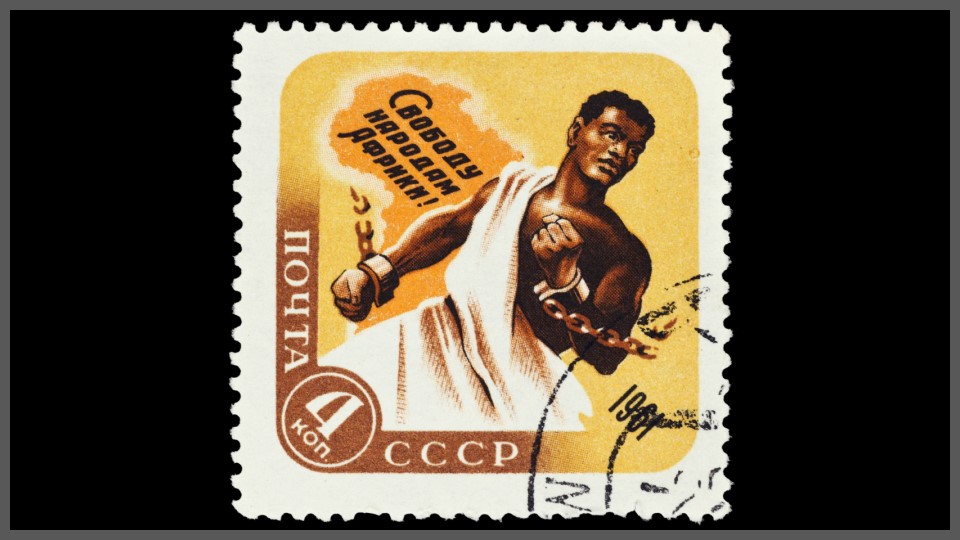
This seminar considers the interactions and ‘glocal’ interdependencies of the decolonising countries in one particular world region – Africa – with two competing models of socialism, the Soviet and Chinese ones.
Moving beyond the conventional framing of the Cold War as a bipolar conflict between the communist bloc on the one hand and the liberal-capitalist ‘western’ bloc on the other, this seminar explores how the Sino-Soviet split that began towards the end of 1950s had turned the rivalry of competing blocs into (at least) a tri-polar contest, while, simultaneously, the decolonisation of the Global South made the so-called Third World a crucial arena of Cold War rivalry.
IAS Fellow Dr. Kirsten Bönker will discuss her paper 'Representing Soviet Economic Aid Strategies or: Framing the Soviet Imagination of Being a World Power' and Loughborough colleague Dr Thoralf Klein will discuss his paper 'Fighting Imperialism – Forging Solidarity: Africa in PRC Visual Propaganda,1950s to 1970s'
Dr. Kirsten Bönker - Representing Soviet Economic Aid Strategies or: Framing the Soviet Imagination of Being a World Power
Kirsten’s presentation sheds light on the increasing Soviet involvement and interconnectedness with the world by creating convergence zones with African actors. It will highlight three aspects: First, it analyses the pictures and perceptions of “Africa” and “African people” that Soviet popular and academic publications conveyed to the Soviet audience. Second, it explores the founding of African-Soviet friendship societies and third, the expansion of Soviet trade relations with Africa countries and the broadening of economic-technical aid.
Dr Thoralf Klein - 'Fighting Imperialism – Forging Solidarity: Africa in PRC Visual Propaganda'
This paper analyses how the People’s Republic of China used propaganda posters as a powerful medium to foster solidarity among its population with the anti-imperialist struggle of African peoples during the Cold War period from the 1950s to the late 1980s. Moving beyond existing studies on the visual representations of ‘Africa’ and ‘Africans’, this paper focuses on three interconnected dimensions: firstly, it follows the trajectory of the posters’ core message from world peace to world revolution and back. Secondly, it examines how as a consequence of the Sino-Soviet split in the late 1950s and early 1960s, visual propaganda presented the PRC as a unique and distinct model of national reconstruction in the areas of ideology, technology and health care. While direct attacks on “Soviet revisionism” were rare, some of the relevant posters can be read as subtle critiques of the USSR’s ideology and policies. Finally, it demonstrates how the visual language of the posters sought to emotionalise the ties between Chinese and ‘Africans’ by showing close physical proximity between members of the two groups, underpinned by a specific rhetoric of bonding.
Please book to attend this Zoom Webinar via the link below.
Contact and booking details
- Name
- Kieran Teasdale
- Email address
- K.Teasdale@lboro.ac.uk
- Cost
- Free